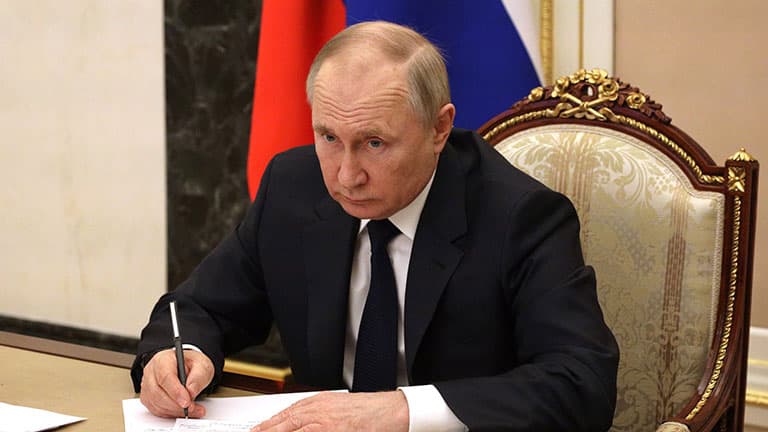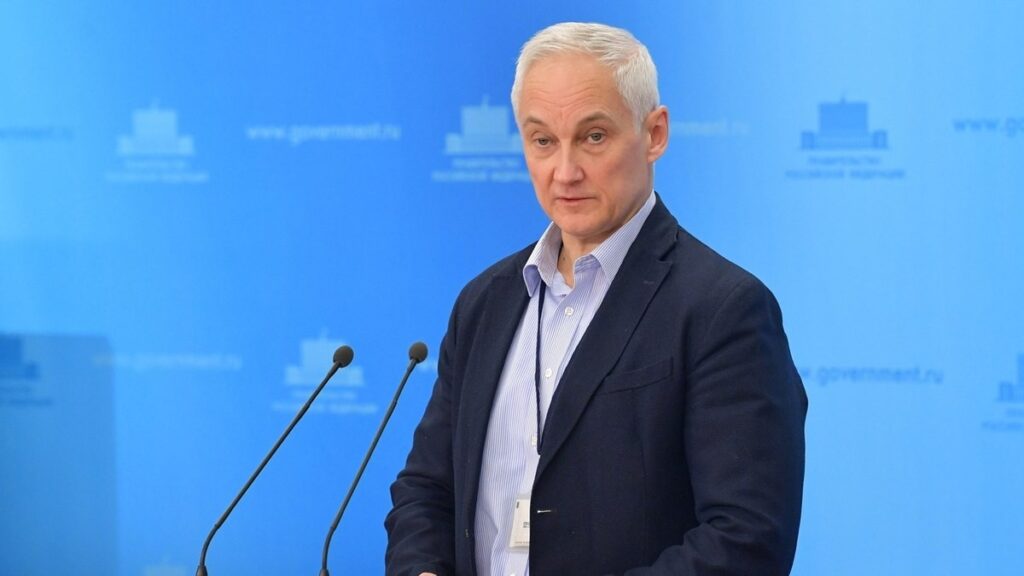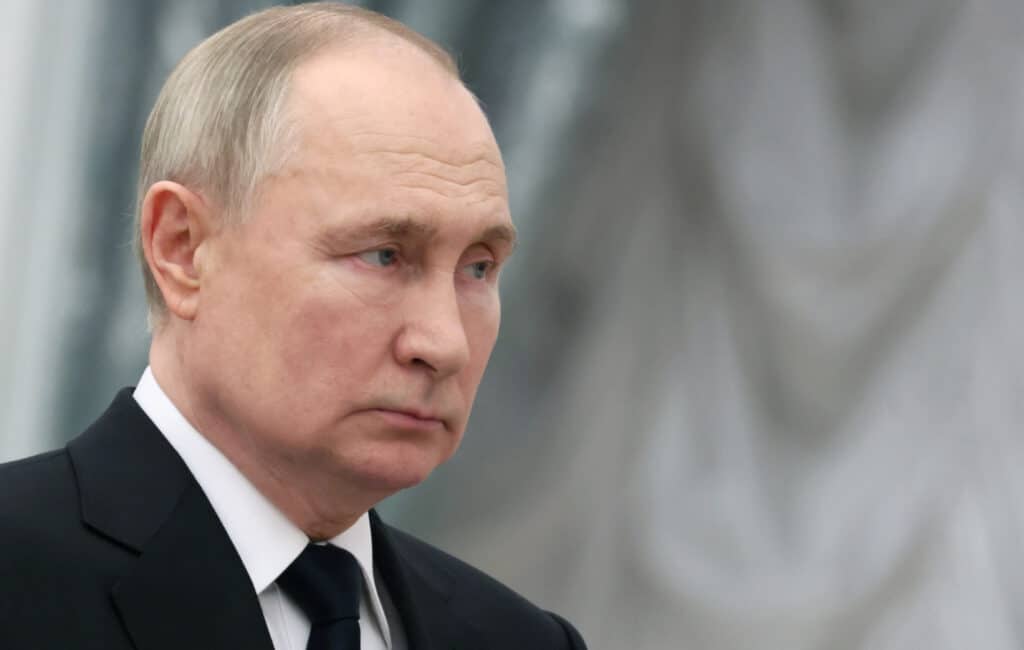Sometimes, big changes happen where you least expect them. Recently, Vladimir Putin made a surprising move by appointing Andrei Belousov as Russia’s new defense minister. This blog will explore how this shift could shape the future of Russia’s military efforts and economy.
Keep reading to find out more about this unexpected change.
Key Takeaways
- Putin appointed Andrei Belousov, an economist, as Russia’s new defense minister, replacing Sergei Shoigu. This move aims to link military efforts closely with the economy.
- Shoigu is not leaving government; he has a new role in Russia’s Security Council where he’ll oversee the military-industrial complex.
- The change is expected to make Russia’s defense spending more effective by tying it directly to economic growth and leveraging international markets.
- Ensuring continuity in key military positions is central, with experienced leaders like Alexander Bortnikov and Sergei Naryshkin keeping their roles, which helps maintain stability at high levels of government.
- Belousov’s expertise in economics will play a crucial part in enhancing national security through strategic budgeting and innovation in defense tactics.
Putin’s Unexpected Leadership Shift

Putin has appointed a civilian economist to lead the defense, ousting Shoigu in an unexpected move. Belousov will take over as Defense Minister while Shoigu is reassigned to the Security Council.
Appointment of Andrei Belousov as Defense Minister
Vladimir Putin made a significant decision by appointing Andrei Belousov as the new defense minister. This move brought a civilian economist into a key military position, highlighting a shift in strategy.
Belousov’s background in economics sets him apart from typical defense appointments, showcasing Putin’s intention to intertwine military strength with national economic strategies.
Belousov steps into his role with the challenge of aligning defense policy and spending with Russia’s broader economic goals. His expertise in economics will be crucial for leveraging the country’s financial resources to bolster its military capabilities.
This transition marks a unique approach to enhancing national security through an economic lens, aiming at both strengthening Russia’s geopolitical stance and ensuring efficient use of its defense budget.
Reassignment of Sergei Shoigu to Security Council
Sergei Shoigu has been moved to the Security Council, taking on a new role as its secretary. This shift places him in charge of overseeing Russia’s military-industrial complex. His experience and connections will likely influence security policy and the defense industry from this powerful position.
Shoigu’s reassignment aims to strengthen military oversight and contribute to national security strategies from within the council. His work will involve coordinating with various agencies to ensure that defense efforts align closely with Russia’s strategic interests and goals.
Strategic Implications of Belousov’s Appointment

Belousov’s appointment aligns defense spending with the economy, leveraging it for military purposes. It’s expected to strengthen Russia’s position in ongoing conflicts and utilize defense industry and international markets.
Aligning defense spending with the economy
The appointment of Andrei Belousov aims to match defense spending with economic growth. This move seeks to ensure that military expenditures support and do not overpower the nation’s financial stability.
By doing so, the government plans to use funds in the defense sector more effectively.
Belousov’s role involves making fiscal policy decisions that enhance national security without straining government budgets. He will focus on ensuring that defense procurement contributes positively to economic efficiency.
The strategy includes leveraging the defense industry and international markets to support both defense needs and economic goals.
Leveraging economy for military purposes
Putin’s appointment of Andrei Belousov as Defense Minister reflects a strategic move to align defense spending with the economy and leverage economic strategy for military purposes.
This decision is aimed at incorporating greater innovation and utilizing the superior power of Russia’s military-industrial complex, strengthening its position in ongoing conflicts.
By intertwining economic warfare with military technology, the Russian government aims to double down on its national security and geopolitical implications.
This shift signifies a crucial step towards enhancing Russia’s defense strategy by capitalizing on its economy as a tool for military power, effectively balancing top political positions while ensuring continuity in key military command.
The appointment underpins Putin’s broader plan to navigate complexities within an ever-evolving world of defense strategies, increasing emphasis on leveraging their economic prowess for national security.
…
Response to Failings of Russian Military
Addressing Russian military shortcomings by strengthening the country’s position in ongoing conflicts and leveraging the defense industry and international markets. This proactive approach aims to improve Russia’s military capabilities amidst evolving global challenges.
Strengthening Russia’s position in ongoing conflict
Addressing shortcomings of the Russian military is crucial to bolster Russia’s standing in ongoing conflict. The leadership shakeup aims to enhance Russia’s position by rectifying deficiencies and aligning with the president’s vision for a strong state.
Belousov’s ties to Putin and his role in overseeing Russia’s drone program demonstrate a close relationship that supports this strategic realignment.
Utilizing defense industry and international markets, alongside continuity in key military positions, will contribute significantly to enhancing Russia’s position in ongoing conflict.
Utilizing defense industry and international markets
Belousov’s appointment as Defense Minister aligns with Putin’s strategic effort to bolster Russia’s military capabilities through the defense industry and international markets. This move is aimed at leveraging the country’s military-industrial complex in global competition, ensuring that defense technology and strategic initiatives are aligned with international trade and partnerships.
Continuity in Key Military Positions
Continuity in key military positions ensures stability and a smooth transition of power. It maintains the balance and consistency necessary for effective defense operations.
Balancing top political system
The shake-up maintains political stability at the top. Putin’s move ensures trusted allies and experienced officials in key positions, maintaining government balance. The shift also secures leadership continuity and strategic positions within the political system.
Moving on to – Continuity in Key Military Positions.
Ensuring continuity in military command
Following the recent leadership changes, it is essential to ensure the continuity in key military positions. Alexander Bortnikov and Sergei Naryshkin will continue to lead the Federal Security Service (FSB) and the Foreign Intelligence Service (SVR), respectively.
Furthermore, Sergei Lavrov will retain his role as the foreign minister, ensuring stability in national security and strategic positions.
Continuity in military command is vital for maintaining leadership stability within security agencies and intelligence services. This retention of experienced leaders contributes to government continuity and reinforces Russia’s position in international affairs.
Conclusion
Putin made a big move by appointing Andrei Belousov, an economist, as the new defense minister. This was a surprise because he replaced Sergei Shoigu, who had been in the job for a long time.
Shoigu isn’t leaving government though; he’s got a new role with Russia’s Security Council and will look after military stuff there.
Belousov taking over is all about using money smarter within the defense department and making sure military strategies are top-notch. Since there’s ongoing conflict in Ukraine, how Russia spends its defense budget matters more than ever.
People didn’t see this change coming and it shows Putin really wants to win in Ukraine by using Russia’s economy to boost military efforts. It also means that Russia wants to make sure they are spending their defense money wisely.
Even with these changes, many key military people are keeping their jobs. This helps keep things stable at the top levels of government and ensures that the military keeps running smoothly without any hiccups.
This shake-up is also Putin’s way of dealing with problems within the Russian military. By bringing in someone from outside the usual circle, like Belousov, Putin aims to strengthen Russia’s position amidst ongoing conflicts and take full advantage of what the defense industry has to offer worldwide.
Belousov has worked closely with Putin before, especially on projects like drones which show innovation in warfare tactics – exactly what Putin values for rebuilding a strong state presence both internally and on international stages.
So why did Putin make this switch? To get ahead using economic power combined with military might – aiming for victory through strategic spending and updating how Russia fights.

